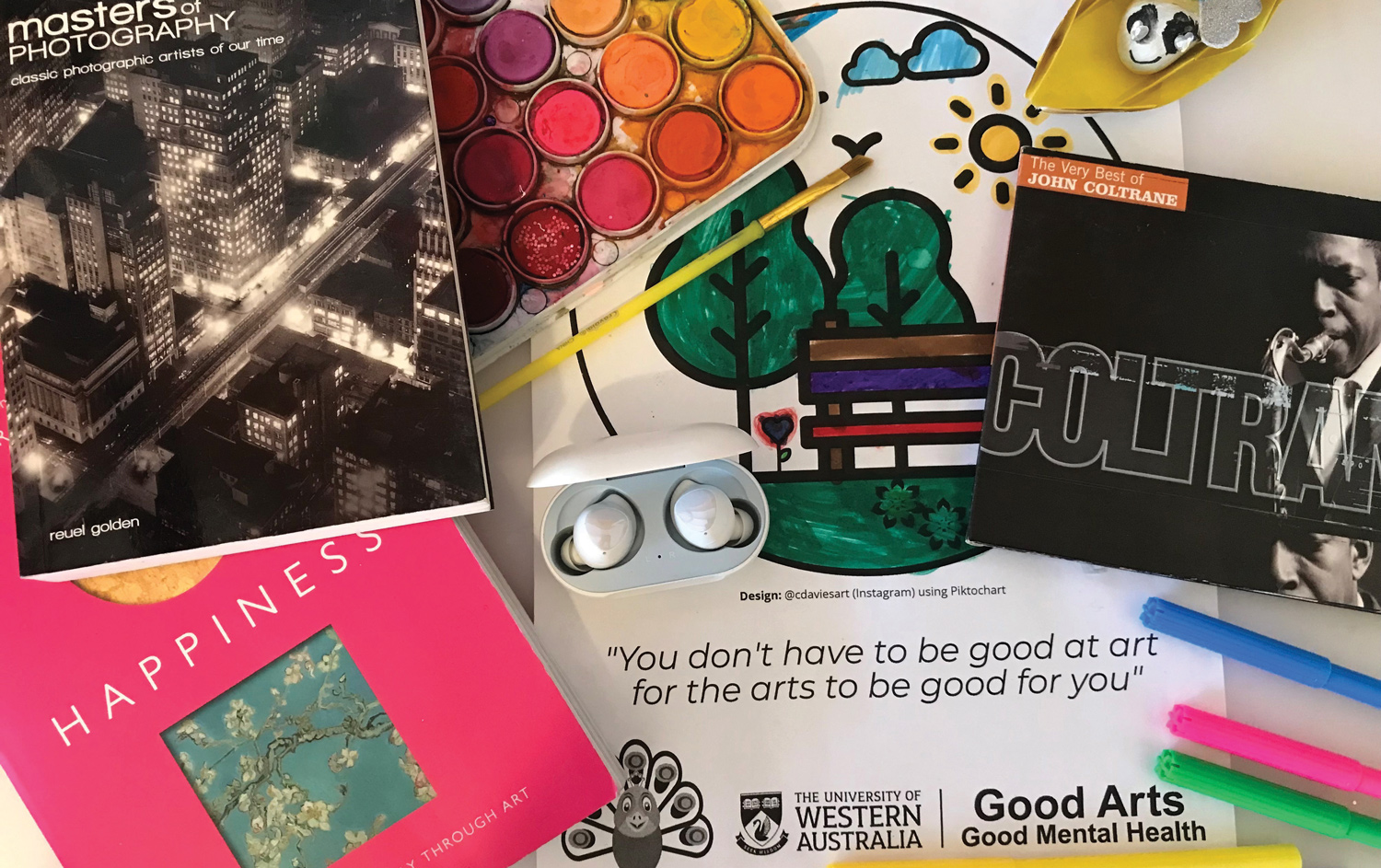 People chasing last-minute Christmas gifts for baby boomer family and friends should consider “anti-ageing” presents like a set of oil paints or concert tickets, according to a WA study.
People chasing last-minute Christmas gifts for baby boomer family and friends should consider “anti-ageing” presents like a set of oil paints or concert tickets, according to a WA study.
New research by the University of Western Australia and Busselton Health Study has linked better physical health and mental wellbeing in older Australians with taking part in the arts for enjoyment.
Lead author Dr Christina Davies said the study found older adults who engaged in any recreational arts activities over the 12 months experienced significantly better mental and physical health outcomes than those who didn’t take part.
“Whether you like listening to music, reading, colouring, singing, dancing or attending concerts, the arts can provide a range of health-enhancing opportunities,” Dr Davies said.
“People don’t need to be good at art for the arts to be good for them. It’s about having a go and taking part in the arts activities and events that make you feel good.”
The study, guided by multi-award winning research is a collaboration between the Busselton Population Medical Research Institute’s Busselton Healthy Ageing Study (BHAS) and UWA’s Good Arts Good Mental Health Project (GAGMH).
The Busselton Healthy Ageing Study began in 2010 and involves more than 5000 baby boomers born from 1946 to 1964.
Busselton Health Study Centre Director, Dr Michael Hunter, said about 85% of the study group took part in the arts over the past 12 months including attending events, making art, learning about art, or spending time as a member or volunteer at an arts organisation.
“Like the positive health benefits derived from physical activity, our study suggests that programs that encourage participation in recreational arts activities may be a useful population-based approach to healthy ageing,” Dr Hunter said.
Further research is planned to look at the “arts dose” — or the optimal amount of time older adults should engage in the arts to see a positive impact on physical and mental health. The arts dose for mental wellbeing has been calculated as two hours a week for the general population.
The BHAS is supported by the WA Government, the Commonwealth Government, the City of Busselton and private donations. The arts project is supported by the Western Australian Future Health Research and Innovation Fund, Minderoo Foundation, the Ian Potter Foundation, CircuitWest, St John of God Health Care and the Department of Local Government, Sport and Cultural Industries.

